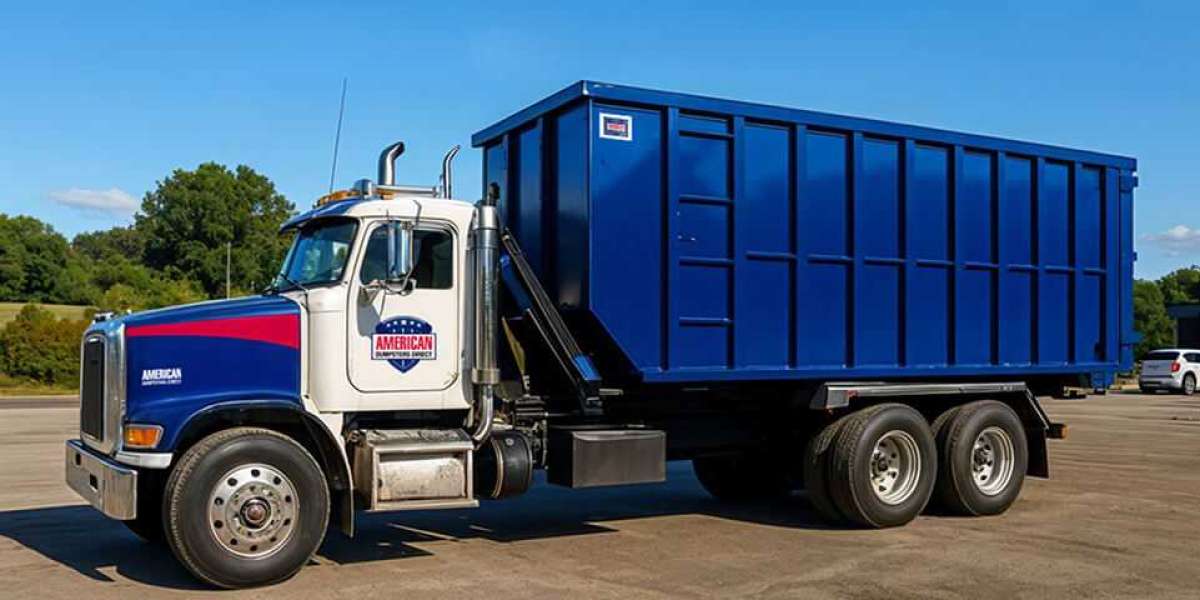Introduction
Industrial facilities, manufacturing plants, and construction sites generate large volumes of waste every day. Managing this waste effectively is critical not only for maintaining a clean and safe environment but also for meeting regulatory compliance standards. One of the most efficient ways to handle industrial waste is through the use of heavy-duty industrial waste containers. Built to withstand extreme conditions, these containers offer a reliable, durable, and cost-effective solution for businesses that need to manage bulk waste disposal efficiently.
What Are Industrial Waste Containers?
Industrial waste containers are specially designed bins and dumpsters created to hold and transport large volumes of heavy, bulky, and often hazardous waste materials. Unlike regular trash bins, these containers are made with reinforced steel and robust designs, ensuring they can handle the demanding requirements of industries such as construction, oil and gas, manufacturing, and warehousing.
Why Heavy-Duty Containers Are Essential for Industrial Waste Management
The scale of industrial operations demands waste solutions that are stronger and more durable than standard options. Heavy-duty containers are:
Durable: Built with thick steel walls and reinforced edges to withstand rough handling.
High-Capacity: Designed to hold large volumes of waste, reducing frequent hauling needs.
Weather-Resistant: Capable of enduring harsh outdoor conditions like rain, heat, or snow.
Customizable: Available in different sizes and configurations to suit specific industrial needs.
Key Features of Heavy-Duty Industrial Waste Containers
Sturdy Construction – Most containers are made with heavy-gauge steel and industrial-grade welding for maximum durability.
Multiple Sizes – Options range from 10-yard containers for smaller operations to 40-yard roll-off dumpsters for major projects.
Versatile Designs – Includes roll-off containers, front-load dumpsters, and specialized hazardous waste bins.
Secure Lids Locking Options – Prevents waste spillage and unauthorized access.
Forklift Pockets Hook Lift Systems – Ensures easy loading, transport, and unloading.
Common Applications of Industrial Waste Containers
Heavy-duty containers are widely used across various industries due to their versatility:
Construction Sites: For debris, concrete, scrap metal, and other building materials.
Manufacturing Plants: For production waste, defective products, and packing materials.
Warehousing Distribution: For cardboard, pallets, and bulk packaging waste.
Oil Gas Industry: For hazardous waste, sludge, and drilling by-products.
Recycling Facilities: For sorting and transporting recyclable industrial materials.
Benefits of Using Heavy-Duty Containers for Waste Management
Cost Savings: By reducing the frequency of pickups, businesses save on hauling fees.
Efficiency: Large capacity means operations run smoother without frequent interruptions.
Compliance: Containers meet environmental regulations for safe waste handling.
Safety: Prevents clutter, reduces fire hazards, and ensures a safer workplace.
Sustainability: Many containers support recycling initiatives, helping businesses reduce their environmental footprint.
How to Choose the Right Industrial Waste Container
When selecting a heavy-duty container, businesses should consider:
Waste Type: General, recyclable, or hazardous materials.
Volume of Waste: Daily or weekly waste output.
Space Availability: On-site space for container placement.
Loading Method: Manual, forklift, or mechanical loading.
Budget: Balancing upfront investment with long-term cost savings.
Industrial Waste Containers vs. Standard Dumpsters
| Feature | Industrial Waste Containers | Standard Dumpsters |
|---|---|---|
| Durability | Heavy-duty steel construction | Light/medium materials |
| Capacity | High (10–40 yards) | Low–medium (2–8 yards) |
| Waste Type | Heavy, bulky, hazardous | Household or light commercial waste |
| Longevity | Long-lasting, resistant | Shorter lifespan |
| Usage | Construction, manufacturing, industrial | Residential, small business |
Best Practices for Industrial Waste Management with Containers
Segregate Waste: Keep recyclable, hazardous, and general waste separate.
Regular Maintenance: Inspect containers for leaks, rust, or damage.
Train Staff: Ensure workers know how to load waste safely.
Schedule Pickups: Arrange regular hauls to avoid overflow.
Use Labels Signs: Clearly mark containers for proper usage.
Conclusion
Industrial waste management is a critical part of running a safe, efficient, and compliant business operation. Heavy-duty industrial waste containers provide the strength, capacity, and durability needed to handle large-scale waste disposal effectively. From construction sites to manufacturing facilities, these containers make waste management easier, more cost-effective, and environmentally responsible. By investing in the right waste solutions, businesses can ensure cleaner operations, regulatory compliance, and long-term savings.







